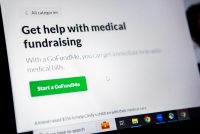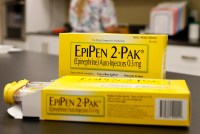Her Hearing Implant Was Preapproved. Nonetheless, She Got $139,000 Bills for Months.
Even when patients double-check that their care is covered by insurance, health providers often send them bills as they haggle with insurers over reimbursement, which can last for months. It’s stressful and annoying — but legal.
Pain Doesn’t Belong on a Scale of Zero to 10
A popular scale for measuring pain doesn’t work, but medicine still has no better alternative.
El dolor ya no se puede medir en una escala de cero a 10
Los médicos de hoy tienen una comprensión más completa del tratamiento del dolor, así como de las terribles consecuencias de recetar opioides con liviandad. Lo que están aprendiendo ahora es cómo medir mejor el dolor y tratar sus muchas formas.
I Was There When Bird Flu First Appeared. It’s Different Today.
The H5N1 flu virus and I go way back. In 1997, I watched as more than a million chickens were slaughtered in Hong Kong to combat the first major global outbreak of the disease. Eighteen people were sickened by the virus and six died, all of whom had close contact with the birds. They were […]
Whatever Happened to Biden’s Public Option?
In the 2020 elections, then-candidate Joe Biden and many of his congressional colleagues loudly advocated for a federal “public option” health insurance plan. It was framed, at the time, as part of his incoming administration’s response to the pandemic. “Low-income Americans will be automatically enrolled in the public option at zero cost to them, though […]
This State Isn’t Waiting for Biden To Negotiate Drug Prices
As the federal government negotiates with drugmakers to lower the price of 10 expensive drugs for Medicare patients, impatient legislators in some states are trying to go even further. Leading the pack is Colorado, where a new Prescription Drug Affordability Review Board is set to recommend an “upper payment limit” for drugs it deems unaffordable. In late […]
Cuando tu cobertura de salud dentro de la red… simplemente se esfuma
los contratos de las aseguradoras con médicos, hospitales y farmacéuticas (o sus intermediarios, los llamados administradores de beneficios farmacéuticos) pueden cambiar abruptamente de la noche a la mañana.
How Your In-Network Health Coverage Can Vanish Before You Know It
One of the most unfair aspects of medical insurance is this: Patients can change insurance only during end-of-year enrollment periods or at the time of “qualifying life events.” But insurers’ contracts with doctors, hospitals, and pharmaceutical companies can change abruptly at any time.
The No Surprises Act Comes With Some Surprises
The No Surprises Act, the landmark law intended to protect patients from surprise out-of-network medical bills, has come with, well, some surprises. A little more than two years after it took effect, there’s good and bad news about how it’s working. First, it’s important to note that the law has successfully protected millions of patients […]
GoFundMe, ¿realmente ayuda a pagar facturas médicas?
Incluso defensores de pacientes y personal del área de ayuda financiera en hospitales recomiendan iniciar una sesión en GoFundMe como una alternativa a terminar con una cuenta en una agencia de cobros.
GoFundMe Has Become a Health Care Utility
Resorting to crowdfunding to pay medical bills has become so routine, in some cases health professionals recommend it.
The FTC Is Attacking Drugmakers’ ‘Patent Thickets’
It’s a big job clearing out so-called “patent thickets” drugmakers create to keep their products’ prices high. But the Federal Trade Commission is giving it a shot.
Ouch. That ‘Free’ Annual Checkup Might Cost You. Here’s Why.
The designers of the Affordable Care Act might have assumed that they spelled out with sufficient clarity that millions of Americans would no longer have to pay for certain types of preventive care. But they didn’t reckon with America’s ever-creative medical billing juggernaut.
The FTC Escalates Biden’s Fight Against Drug Prices
It’s daggers out at the Federal Trade Commission in its fight against anticompetitive practices in health care. This past year, it has issued more stringent guidelines to block and discourage hospital mergers, and it investigated practices by middlemen in the drug supply chain. Now drug manufacturers themselves are in the agency’s crosshairs. In November, the FTC challenged the validity of more […]
From Hospital to Hospitality: Spin Doctors Brand Getting Sick as an Adventure. It’s Not.
At $1,000 a night for a private room, medical centers are offering fancy food and casting health care as a “journey.” Instead of creature comforts, how about helping us feel better?
What One Expectant Mom’s Effort To Get an RSV Shot Says About Health Policy
Today we bring you the story of a patient seeking the RSV vaccine — and how her frustrating journey illustrates why it can be so hard in the United States to get an important medicine recommended by federal regulators. Hannah Fegley of Silver Spring, Md., says she spent seven hours on the phone last month […]
A New Era of Vaccines Leaves Old Questions About Prices Unanswered
The CDC’s RSV vaccination recommendations beg the question: How much should an immunization that will possibly be given to millions of Americans cost to be truly valuable?
The Shrinking Number of Primary Care Physicians Is Reaching a Tipping Point
The declining share of U.S. doctors in adult primary care is about 25% — a point beyond which many Americans won’t be able to find a family doctor at all.
Sin barreras, los precios de algunos medicamentos existentes se han disparado, incluso cuando han caído drásticamente en otros países. Los nuevos medicamentos tienen precios enormes, respaldados por el lobby y el marketing.
A Peek at Big Pharma’s Playbook That Leaves Many Americans Unable to Afford Their Drugs
Brand-name drug prices in the U.S. — more than three times the price in other developed countries — are related neither to the amount of research and development required to bring them to market nor their therapeutic value, recent research shows. Have drugmakers overplayed their hand?


















